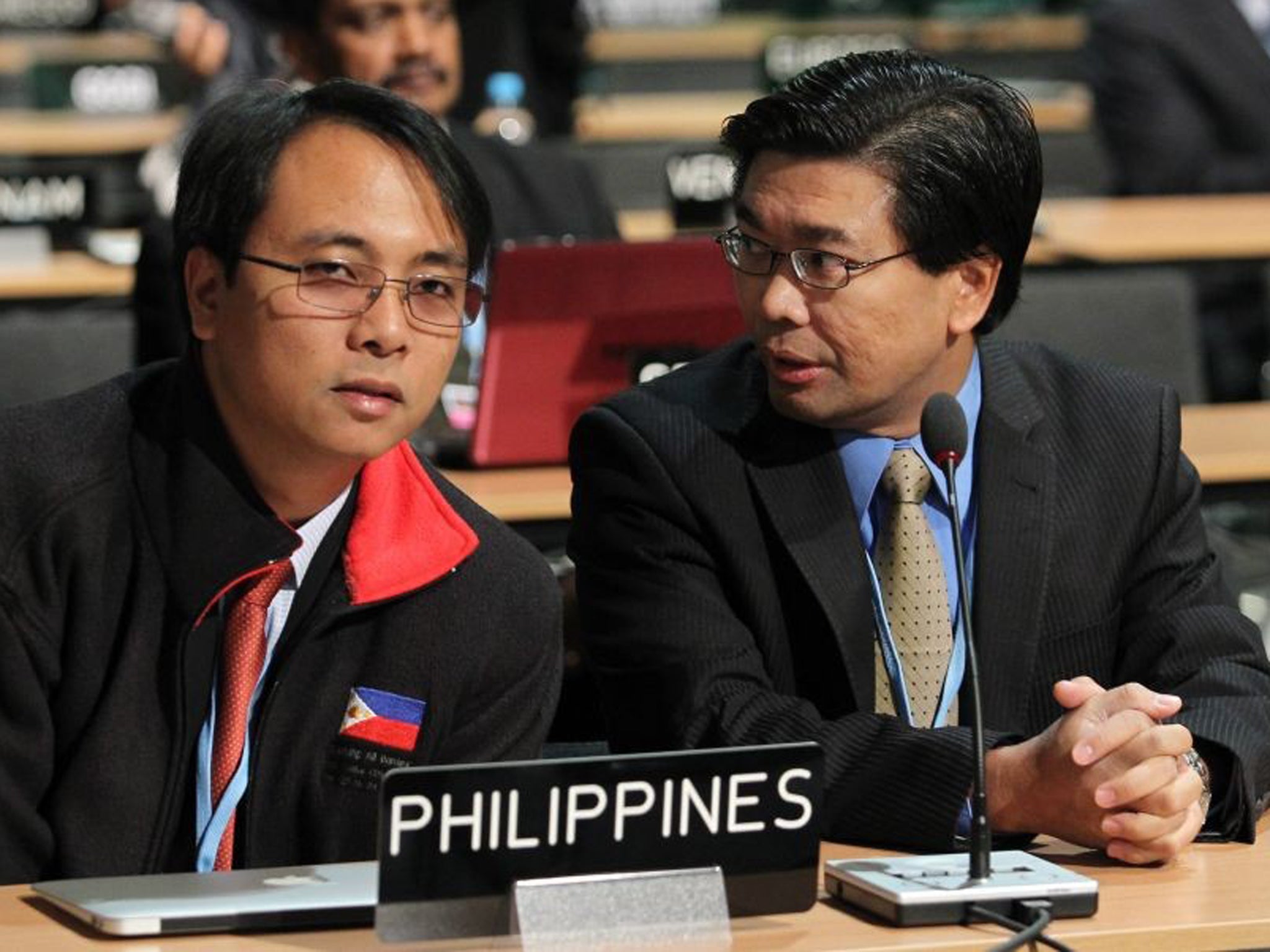Typhoon Haiyan overshadows UN climate change talks in Poland
Philippines envoy breaks down and vows to stop eating until 'meaningful outcome is in sight'

The Philippines envoy to the UN climate change conference has issued an emotional announcement that he will go on hunger strike unless talks lead to a “meaningful outcome”.
Naderev “Yeb” Sano, whose family comes from the city of Tacloban worst hit by the devastation of Typhoon Haiyan, made a tearful appeal for international action at the start of the two-week summit in Warsaw.
Representatives from more than 190 countries listened as Mr Sano said “climate change will mean more intense tropical storms”, and vowed not to eat until some form of consensus could be reached.
“What my country is going through as a result of this extreme climate event is madness,” Mr Sano said. “The climate crisis is madness. We can fix this. We can stop this madness. Right now, right here.”
At times choking on his words, the diplomat said he was still waiting to hear news on whether his family was safe in the aftermath of the massive storm, which has killed an estimated 10,000 people and left 660,000 homeless.
He said he was relieved to hear his brother had survived, adding: “In the last two days he has been gathering bodies of the dead with his own two hands.”
“In solidarity with my countrymen who are struggling to find food back home… I will now commence a voluntary fasting for the climate,” he said. “This means I will refrain from eating food during this (conference) until a meaningful outcome is in sight.”
In her opening speech at the talks, UN climate chief Christina Figueres also made reference to the “devastating impact” of the typhoon, and urged delegates to “go that extra mile” in their negotiations.
Scientists say single weather events cannot conclusively be linked to global warming. Also, the link between man-made warming and hurricane activity is unclear, though rising sea levels are expected to make low-lying nations more vulnerable to storm surges.
Nevertheless, extreme weather such as hurricanes often prompt calls for urgency at the UN talks.
Last year, Hurricane Sandy's assault on the US East Coast and Typhoon Bopha's impact on the Philippines were mentioned as examples of disasters the world could see more of unless it reins in the greenhouse gas emissions that scientists say are warming the planet.
On the sidelines of the conference, climate activists called on developed countries to step up their emissions cuts and their pledges of financing to help poor countries adapt to rising seas and other impacts of climate change.
Tense discussions also are expected on a proposed “loss and damage” mechanism that would allow vulnerable countries to get compensation for climate impacts that it's already too late to adapt to.
Asked whether the US had any plans to increase its emissions target in the international talks, US negotiator Trigg Talley said the “focus for us now” is to meet the existing target, of cutting emissions by 17 per cent between 2005 and 2020.
“I think that we are on the right track to achieve it,” he said, noting President Barack Obama's plans to cut emissions from power plants, boost renewable energy and other measures.
Though no major decisions are expected at the conference in Warsaw's National Stadium, the level of progress could be an indicator of the world's chances of reaching a deal in 2015. That's the new watershed year in the UN-led process after a 2009 summit in Copenhagen ended in discord.
Additional reporting by the Associated Press
Join our commenting forum
Join thought-provoking conversations, follow other Independent readers and see their replies
Comments
Bookmark popover
Removed from bookmarks